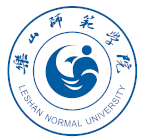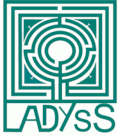Home > News > Lab visits in Beijing
Lab visits in Beijing
November 24, 2017
A number of master and PhD students dealing with Yunnan ecosystems issues at the YUFE laboratory of Wildlife Management and Ecosystem Health are co-supervised by laboratories of the Institute of Zoology, Beijing Normal University and the Institute of Forestry of the Chinese Academy of Agriculture, with the support of Chrono-environment. Pr Li Li, Dr Eve Afonso and Pr. Patrick Giraudoux took the opportunity of a stop-over in Beijing to meet with colleagues on November 22-23:
- Pr Zhang Li, Beijing Normal University, was met at the office of the Alashan society of entrepreneur ecology with PhD students co-supervised. A number of them will join the YUFE - GDRI EHEDE partners meeting days, Kunming.
- Pr Li DiQiang at the Forestry research institute of the Chinese academy of forestry. Pr Li DiQiang coordinates research on biodiversity and endangered species in China such as wild camel and sympatric communities of ungulates (wild ass, black-tailed gazelle, etc.) and predator (wolf, dhole, snow leopard, etc.), snow leopard in China and neighboring countries, brown bear/snow leopard – human conflicts on the Tibetan plateau, genetics of the golden snub-nosed monkey, etc…
 Possibilities for collaborations in the field of ecohealth in the framework of the GDRI EHEDE and perspective for strengthening synergistic research (e.g. common response to call for research proposals) were discussed. A number of PhD students are co-supervised in the YUFE laboratory of Wildlife Management and Ecosystem Health, with the support of Chrono-environment researchers. A number of staff and students will meet further with GDRI members at the YUFE - GDRI EHEDE partners meeting days, Kunming.
Possibilities for collaborations in the field of ecohealth in the framework of the GDRI EHEDE and perspective for strengthening synergistic research (e.g. common response to call for research proposals) were discussed. A number of PhD students are co-supervised in the YUFE laboratory of Wildlife Management and Ecosystem Health, with the support of Chrono-environment researchers. A number of staff and students will meet further with GDRI members at the YUFE - GDRI EHEDE partners meeting days, Kunming.
Read more (in Chinese)...
-
 Pr LiMing, Institute of Zoology of the Chinese Academy of Science in Beijing. Pr Li Ming is the head of the Primate Ecology Research Group and investigates issues related to evolutionary biology and conservation biology in primates. Research issues of common interest were discussed with permanent researchers, PhD and master students, especially about the ecology and behaviour of the Yunnan snub-nosed monkey.
Pr LiMing, Institute of Zoology of the Chinese Academy of Science in Beijing. Pr Li Ming is the head of the Primate Ecology Research Group and investigates issues related to evolutionary biology and conservation biology in primates. Research issues of common interest were discussed with permanent researchers, PhD and master students, especially about the ecology and behaviour of the Yunnan snub-nosed monkey.
This stop-over in Beijing was also an opportunity to meet with Pierre Lemonde, Counsellor for Science and Technology, and Antoine Mynard, director of the CNRS bureau in China, at the French Embassy.









